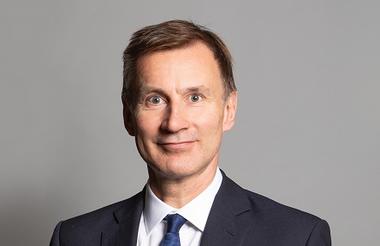The Treasury has announced that it will offer charities and businesses a reduced level of government subsidy from April.
Currently, voluntary organisations automatically receive a government discount on their energy bills through the Energy Bills Relief Scheme (EBRS), which runs until the end of March.
The Treasury yesterday announced the EBRS would be replaced by the Energy Bills Discount Scheme (EBDS) from the start of April, which will also automatically discount charities’ energy bills until 31 March 2024.
The level of government support will be lower, with government subsidy through the EBDS capped at £5.4bn over the year of its operation, compared to the EBRS’ estimated £18.4bn cost over six-months.
From 1 April, charities will see a unit discount of up to £6.97/MWh automatically applied to their gas bill and a unit discount of up to £19.61/MWh applied to their electricity bill.
However, charities paying less than £107/MWh for gas and £302/MWh for electricity will not receive any subsidy, as their bills will fall below the scheme’s threshold.
The government also announced a higher level of support for energy and trade intensive industries (ETII) with discounts of up to £40.0/MWh for gas and £89.1/MWh for electricity.
Charities that run libraries, museums, historical sites, zoos and nature reserves may be eligible for the ETII scheme, with the government announcing details of how to access this support “in due course”.
Charity sector bodies welcomed the government’s announcement of some continued subsidy but urged longer-term support for voluntary organisations.
Treasury: ‘New scheme strikes a balance’
The Treasury’s new guidance says the EBDS “strikes a balance between supporting businesses over the next 12 months and limiting taxpayer’s exposure to volatile energy markets”.
It also says wholesale gas prices have halved since the current EBRS was announced in September.
The Guardian reported last week that a spell of mild weather in the UK and Europe had driven a sharp decline in month-ahead European gas prices to €73.7/MWh from over to €300/MWh in September.
Chancellor Jeremy Hunt said yesterday: “Even though prices are falling, I am concerned this is not being passed on to businesses, so I’ve written to Ofgem asking for an update on whether further action is needed to make sure the market is working for businesses.”
In his letter, he has asked the energy regulator to review the UK energy market for businesses before his spring budget.
NCVO: ‘Charities left in the cold’
NCVO chief executive Sarah Vibert expressed “deep concerns” about the EBDS and urged the government to include all charities that rely on intensive energy use – including hospices, refuges, social care and community leisure providers – to given extra support through the ETII scheme.
“The offer is of far less support to already struggling charities and leaves them vulnerable to uncontrolled external factors. It also doesn’t offer additional support to all high-energy use charities, and this needs immediately rectifying,” she said.
“We appreciate the government cannot subsidise energy bills forever, but there is a significant risk to charities if we don’t urgently start working on a long-term plan. To be painfully blunt – charities save lives. For every charity that stops a service, or closes its doors forever, there are people who lose that lifeline.
“There are some big winners in the energy sector but charities, and the communities they serve, are left in the cold. Many energy companies talk of the importance of people and communities. Now is the time to demonstrate this commitment by coming to the table with us, and government, to get a grip on this crisis and plan how we prevent ever being in this situation again.”
ACEVO: ‘Support not enough to stop closures’
ACEVO chief executive Jane Ide welcomed the fact that the ongoing support would be automatically applied and that charities had been explicitly mentioned in the government’s announcement, but she warned that the reduced level of support would not stop many charities from closing.
“I have already fed back to the exchequer secretary my fear that this support will not be enough to save many badly needed charity services from closure,” she posted on social media.
“We know that government understands our articulation of the impact on communities and individuals when charities have to reduce or close services.
“We know that they understand that there are knock-on consequences for the public purse as well as the public sector when charities like hospices, community centres, youth groups, mental health services or domestic violence refuges are unable to function effectively.”
CAF: ‘Disappointing’ no targeted support for charities
Neil Heslop, chief executive of the Charities Aid Foundation (CAF) said he was disappointed that the EBDS did not include targeted support for the charity sector.
“Charities are caring for those who are hit the hardest by the cost-of-living crisis, whether by providing warm places, food packages, mental health services, or support for the homeless. Continued energy support is therefore critical, but it is disappointing that the government has not announced targeted support for charities in the new discount scheme,” he said.
“More and more people are relying on charity services, but they are stretched beyond measure with inflation increasing their costs and donations falling. Their finances are on a knife-edge even with the existing scheme, so organisations are relying on their reserves to cover core costs or cutting back on services.
“Many charities are running out of options to continue to provide for the vulnerable in our communities.”
NPC: ‘Reduced support will make it tough for charities’
Theo Clay, policy manager at think tank NPC, also said it was good that charities would receive some support.
“For many charities however, the reduced support will make it tough for them to continue to deliver to people in need during the cost-of-living crisis. For some, this is already becoming a reality without the cut in support,” he said.
“To protect people from being left without support, it is imperative that charities who use more energy, such as care homes, can access the additional support the government has discussed.”
Related Articles












